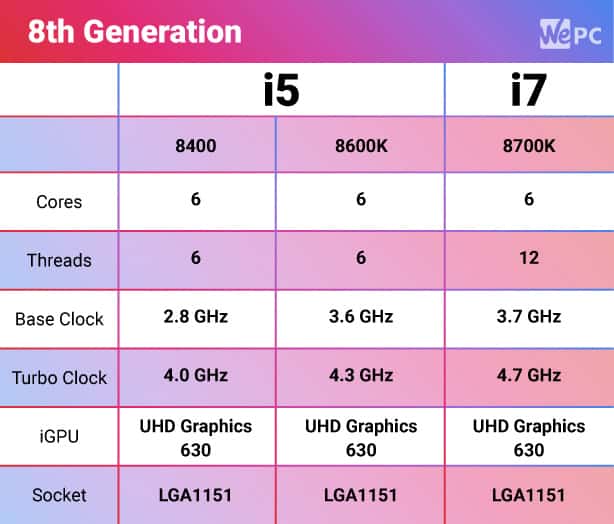
Someone should definitely get the i7-6700k if he needs more than 32GB of RAM or is using applications relying heavily on memory bandwidth or wants certain features that are available only on newer mainboards. Why would someone choose 6th-gen if 4th-gen is faster and cheaper? For most homeusers, 32GB of RAM will likely be enough though.ģ. In practice, there is not much of a difference in speed unless you're actually in need of very high memory bandwidth and overall memory size. But the most important observation you should take away from those results is: If you look at these results, you'll see the i7-4790k outperform the i7-6700k in some applications, where it's the other way around in other applications. The benchmark is slower because it seems to take advantage of the i7-4790k's higher boost clock rather than the i7-6700k's higher memory bandwidth.Īs I explained above, this totally depends on the application. So in practice, one can expect the i7-6700k to outperform the i7-4790k where memory bandwidth is crucial, whereas the i7-4790K will have slight advantages in applications requiring high single core compute performance - single core because that is the scenario where the CPUs will reach their highest boost clock. The features that will make the biggest difference between those CPUs are the considerably faster memory bandwidth of the i7-6700k vs the higher boost clock of the i7-4790k.

That being said, the performance difference one can expect between those CPUs is rather low.


 0 kommentar(er)
0 kommentar(er)
